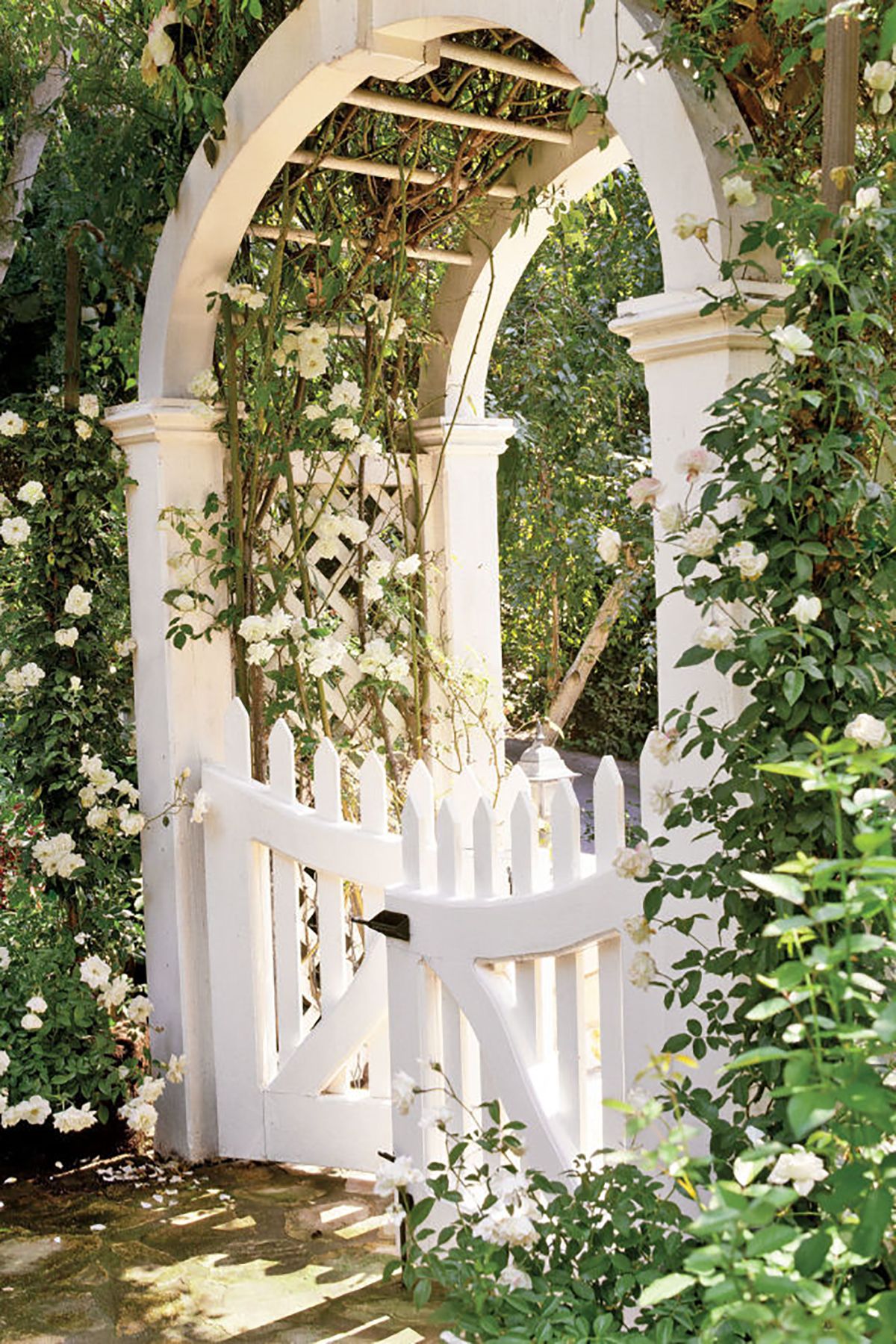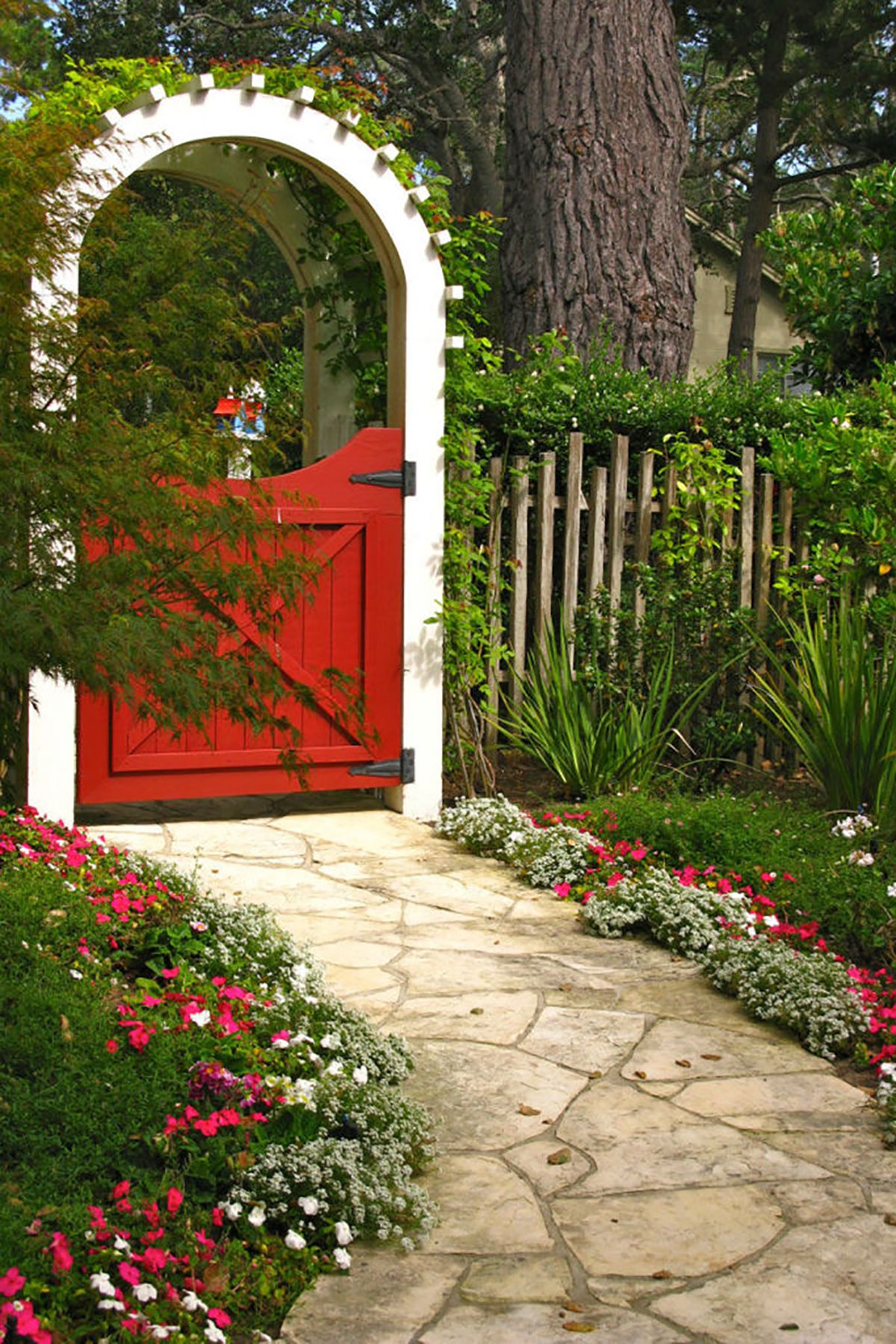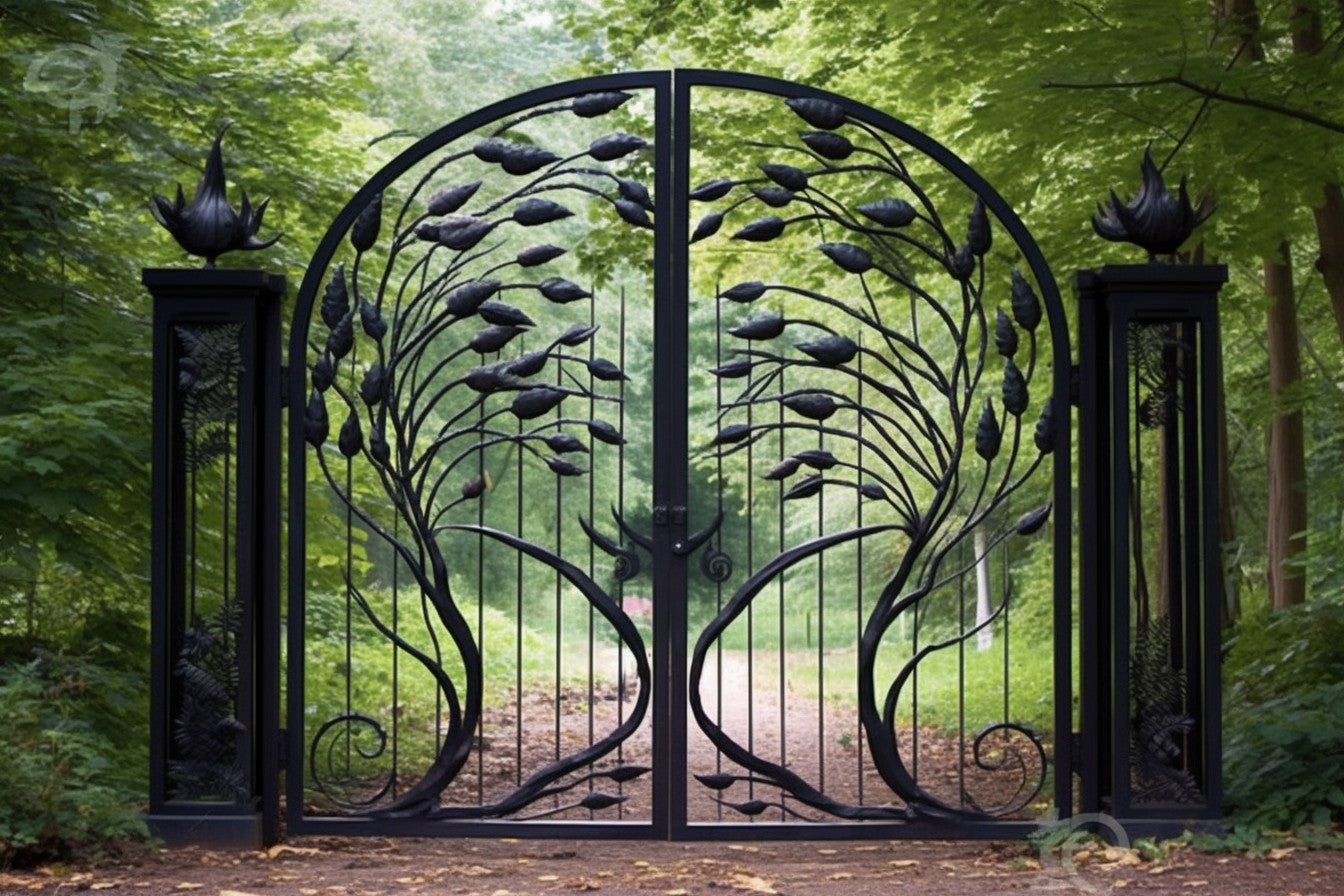Decorative gates serve as the first impression of your home or garden. Whether you’re looking to enhance your property’s curb appeal, add value, or simply create a welcoming atmosphere, a beautifully designed gate can do wonders. With over a decade of experience in landscape architecture, I’ve seen firsthand how a decorative gate can redefine entryways and elevate outdoor spaces.
Why Choose a Decorative Gate?
Decorative gates are more than just functional barriers; they offer aesthetic value and can be customized to reflect your personal style. Here are several reasons why you should consider investing in a decorative gate:
- Enhanced Security: A sturdy gate provides an additional layer of security for your home.
- Increased Curb Appeal: A stylish gate can enhance the overall visual appeal of your property.
- Custom Expression: Decorative gates can be tailored to reflect your taste and style, from classic to contemporary.
- Property Value: A well-designed gate can increase the market value of your home.
Types of Decorative Gates

Choosing the right type of decorative gate can significantly impact the overall look of your space. Below, I outline some popular options that cater to various styles and preferences.
1. Wooden Gates

Wooden gates are timeless and versatile. They can be crafted from various types of wood, including cedar, redwood, or pine, providing durability and aesthetic charm.
Pros and Cons of Wooden Gates
| Pros | Cons |
|---|---|
| Natural look and feel | Requires regular maintenance |
| Customizable designs | Susceptible to rotting and pests |
| Good insulation properties | Can be expensive |

2. Wrought Iron Gates
Wrought iron gates are known for their strength and elegance. They can be intricately designed and are highly durable, making them ideal for both security and style.

Pros and Cons of Wrought Iron Gates
| Pros | Cons |
|---|---|
| Extremely durable | Can rust without proper treatment |
| Elegant and customizable | Heavy and requires strong support |
| Increases property value | Can be expensive to install |
3. Vinyl Gates

Vinyl gates are gaining popularity due to their low maintenance and variety of styles. They mimic the appearance of wood but are more durable and weather-resistant.
Pros and Cons of Vinyl Gates
| Pros | Cons |
|---|---|
| Low maintenance | Less customizable than wood |
| Weather-resistant | Can become brittle in extreme temperatures |
| Affordable | Can fade over time |

4. Aluminum Gates
Aluminum gates are lightweight, rust-resistant, and customizable. They provide a modern look and offer decent security without the bulk of wrought iron.
Pros and Cons of Aluminum Gates
| Pros | Cons |
|---|---|
| Lightweight and strong | Can be less sturdy than wrought iron |
| Rust-proof | Less traditional look |
| Low maintenance | Can be more expensive than vinyl |
Decorative Gate Styles to Consider
When choosing a decorative gate, the style is paramount. Here are some ideas that can complement the architecture of your home.
1. Arched Gates
Arched gates provide a classic look and can create a grand entrance. They work well with gardens and can be adorned with climbing vines or flowers.
2. Lattice Gates
Lattice gates offer an open feel while maintaining privacy. They can be painted or stained to match your home and allow vines to intertwine for a natural touch.
3. Slatted Gates
Slatted gates feature horizontal or vertical boards, allowing light and air while providing a sense of enclosure. They work particularly well in modern settings.
4. Decorative Ironwork Gates
These gates are adorned with intricate patterns and designs, adding an artistic flair. They are perfect for those looking to make a bold statement about their style.
5. Rustic Farmhouse Gates
Inspired by country living, these gates often feature distressed wood or metal elements, adding warmth and charm to your property.
Choosing the Right Gate for Your Space
To choose the perfect decorative gate, consider the following factors:
1. Purpose
Is it primarily for security, decoration, or both? Understanding the purpose will guide your choice.
2. Size
Measure your entryway to ensure the gate fits perfectly. A gate that’s too small or too large can be unappealing.
3. Style
Choose a style that complements your home’s architecture and your personal taste.
4. Budget
Determine how much you’re willing to spend. Decorative gates can range from affordable to luxury options, so budget wisely.
5. Maintenance
Consider how much time you’re willing to invest in maintenance, as different materials require different levels of care.
Installation Tips for Your Decorative Gate
Installing a decorative gate can be a DIY project, or you can hire a professional. Here are some tips if you decide to do it yourself:
1. Gather Tools and Materials
Make sure you have the necessary tools, such as a level, post hole digger, and power drill.
2. Check Local Regulations
Consult local building codes to ensure compliance with regulations regarding height, materials, and placement.
3. Prepare the Area
Clear the installation area of debris and mark where the gate posts will go.
4. Install the Gate Posts
Ensure the posts are set in concrete for stability. Allow the concrete to cure before attaching the gate.
5. Hang the Gate
Using a level, hang the gate on the hinges and ensure it swings open and closed smoothly.
Maintenance Tips for Longevity
To ensure your decorative gate lasts for years, regular maintenance is essential. Here are some tips:
1. Regular Cleaning
Depending on the material, use appropriate cleaning solutions to prevent dirt buildup.
2. Check for Rust or Damage
Inspect metal gates regularly for rust and apply protective coatings as needed.
3. Repaint or Re-stain Wood Gates
If you have a wooden gate, it may require re-painting or re-staining every few years to maintain its appearance.
4. Lubricate Hinges
Keep hinges lubricated to ensure smooth operation and prevent squeaking.
FAQs About Decorative Gates
What materials are best for decorative gates?
Popular materials include wood, wrought iron, vinyl, and aluminum. The best material depends on your style preferences, budget, and maintenance willingness.
How much does a decorative gate cost?
Costs can vary significantly based on material, size, and design, typically ranging from $200 to $2000 or more.
Can I install a decorative gate myself?
Yes, many homeowners successfully install gates as a DIY project, but it requires some basic carpentry skills and tools.
How do I maintain my decorative gate?
Regular cleaning, inspections for damage, and appropriate treatments for wood or metal are essential for maintenance.
Are decorative gates secure?
Yes, many decorative gates provide solid security when constructed from durable materials and properly installed.
Conclusion
A decorative gate can be a stunning focal point for your home or garden. With various styles, materials, and designs to choose from, you can find the perfect gate that reflects your personality while meeting functional needs. From enhancing security to boosting curb appeal, the right decorative gate can significantly impact your property.
As someone who has seen the transformative power of the right gate, I encourage you to explore your options and invest in a decorative gate that not only elevates your space but also provides warmth and charm for years to come.